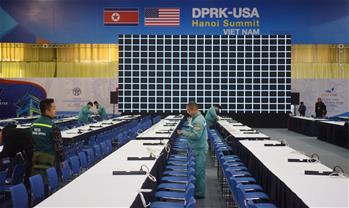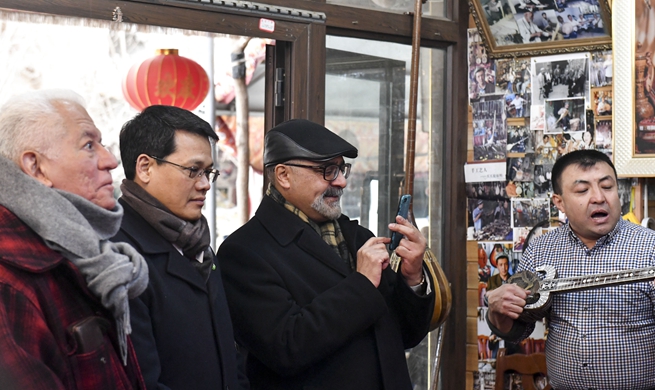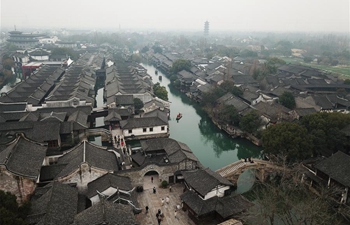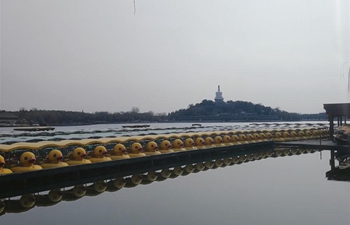SHIJIAZHUANG, Feb. 27 (Xinhua) -- Dai Baiqi, 87, does not live with her family, nor at home in Beijing. Instead, she sold her home and moved to a nursing center in Beijing's neighboring Hebei Province.
It was not a rash decision.
After retiring from a teaching post at a Beijing medical institute, Dai helped raise her granddaughter for her daughter's family in New Zealand before returning home.
"I could not get used to living abroad, and I did not want to become a burden for my daughter," she said. But the widow also did not want to die alone at home.
After surveying over 40 nursing centers in and around Beijing, Dai chose the one in Yanjiao in the city of Sanhe, Hebei Province.
She lives in a one-bedroom suite with a living room, where emergency buttons are equipped. Whenever a button is pressed, medical staff will show up and send her to the hospital within 10 minutes, if necessary.
"I no longer worry about dying alone at home in the case of an emergency," she said, adding that she witnessed several elderly people sent to the hospital for stroke or heart attack in a timely manner and without any aftereffects.
The monthly cost of the center is 6,000 yuan (900 U.S. dollars) per person, half the price for the same level of nursing homes in Beijing.
Dai is among some 2,000 Beijing elderly who have chosen the nursing home in Yanjiao.
Li Donghui, marketing director of the nursing center, said most of their clients retired from posts in colleges, government departments and public institutions. The nursing home has singing, dancing, calligraphy and Peking opera groups, where elderly who share the same hobbies can enjoy themselves together.
The nursing center has currently completed expansion. Some 7,000 elderly Beijingers will be able to be accommodated there by 2020, Li said.
While many elderly people have difficulty finding an available bed in Beijing care centers because of the city's aging pressure, an increasing number of them turn to nursing homes in neighboring areas for more bed resources and lower costs.
Official data shows that 3.5 million Beijing residents, or more than a quarter of its registered population, were aged 60 or older by November 2018. The number will further rise, experts say.
Five years ago, China initiated a strategy to integrate the development of Beijing, Tianjin and Hebei to create a model with a better economic structure, cleaner environment and improved public services.
The three regions enhanced cooperation in elderly care services, with Hebei and Tianjin set to offer more nursing centers and Beijing to financially support the operation of the centers.
From 2013 to 2018, the Beijing municipal government raised subsidy from 300 yuan to 500 yuan per bed every month in the nine pilot nursing home projects for regional integrated development, including the one in Yanjiao.
To encourage Beijing senior citizens to move, the three regions also cooperated in healthcare services. Medical bills of Beijing patients will be directly covered in nearby hospitals of the nursing care projects.
Jiang Jianming, deputy director of Hebei provincial health commission, said Beijing's surrounding areas, especially the 14 counties and cities bordering the Chinese capital, are mulling to build nursing bases and hospitals for Beijing elderly people.
Some 300,000 to 500,000 people would come to Hebei for their retirement life in the future, he said.
Including Dai, more than 100 people in the Yanjiao nursing center sold their homes in Beijing.
"This is my home. I'd like to spend the rest of my life here," said Dai.

















